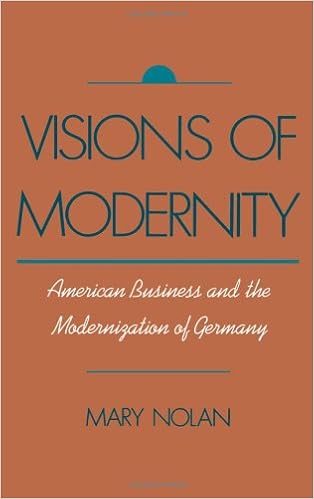
Originally Posted by
Wagner

I disagree and it certainly did not start out that way.
What we are dealing with today (and paying the price for) are the unintended consequences of The Marshall Plan, aka: nation building by economic means
The intent was positive in nature and early on it's purpose was to prevent militarization, the rise of communism and to antagonize the Soviet Union
All good things, right?
Although technically The Marshall Plan did not extend to Japan (in name and by legislation), similar activities were conducted there under the guidance of General Douglas MacArthur
The Korean War solidified our entanglement in the Pacific sphere of economic activity even further
Japan and Germany both enjoyed strong industrial bases, good infrastructure and an educated population BEFORE the War
Japan still exerted strong economic influence over it's former colonies as well (where a lot of the consumer junk we enjoy today still comes from and comes from even more)
Many of us here are old enough to remember well the flood of German electronics into this country, then automobiles ever growing from the early '50s onward. And as for Japan? Their goods a bit later (remember Pearl Harbor, the buying public here resisted for a while) but eventually Americans got over that one, just take a look at Toyota for a good model/example..........and KENWOOD and Pioneer and JVC and SONY and on and on and on.............but it all started with cheap toys and pots and pans............the brunt of jokes during my childhood
It is a case of the best of intentions and at the same time growing complacent and being lulled into a false sense of security often enjoyed by the victors in any cataclysmic struggle. Without attempting to construct a doctoral thesis or tome, our best laid (geopolitical) efforts exceeded, I think, our wildest dreams, a Frankenstein's monster of sorts, and we have lived with it all of the decades following WWII..............and yes, by the 1970s greed may have certainly become a factor in some dealings but it was never the original intent.............one could say for example that the gas lines of the Carter years helped to solidify the Jap auto makers market here, or Iacocca opening the door for Mitsubishi built automobiles wearing Dodge and Plymouth name tags (that one still gets me the most)
Remember how initially, for the most part with the Japanese, it was more a matter of OUR technology and engineering married with THEIR execution? But that changed very quickly (think American automobiles, German cameras and eventually audio electronics) Semi Valley Marantz (starting with Superscope), Sherwood and "still headquartered in the U.S.A. Fisher products comes to mind...........and these examples are but a few
As for engineers? No Marshal Plan and back door visas for former Nazi employees, no Moon walk..............or ICBMs
A LOT of sharing and cross pollination but initially it was kept from public view (unless you were willing to dig really deep, deeper that the average consumer cared to)
Enough of this, but I just have to say that criticizing endlessly the evils of FREE market capitalism is an over simplification at best and simply plain ignorance at worst. What is happening at JBL (and a 100 other once great companies) is nothing more than a continuum of a series of events that started long ago, 1945 to be exact. Left as it was originally, things might have turned out differently (think Avery Fisher and his "Dutchmen")
What is happening at JBL TODAY is in large part the result of labor unions, the EPA and a myriad of other destructive domestic "progressive" GOVERNMENTAL (POLITICIANS and SPECIAL INTERESTS) actions as it is the fault of any "bean counter", CEO or board of directors
I'm not defending them (CEOs and Board Rooms), because in many instances they are the same scum bags who help elect the folks making up these rules of the "new game", because yes, they are greedy pigs. But my point is that who one elects to office in THIS COUNTRY does and will have long lasting effects eventually as well as short, and for the past 40 years or so, not so happy ones
That, and the fact that people's "wants" have been manipulated and changed through marketing and now this "group think" brought on by "social media" (the devil's eyeball) to the point of being unrecognizable
I started ranting about 25 years ago that the way things were going we'd soon be getting ALL of our news, entertainment, music and everything else under the Sun from the same (few) monolithic sources and via a handful of "providers" and through a singular device or delivery system technology
Not quite 100% there just yet, but for all practical purposes, that day is now
JBL and others hung on as long as they did thanks to the fact that much of their technology and innovation was proprietary and the environment they existed in at the time immediately following the War wasn't as yet so punitive towards their activities.................that and the fact that America enjoyed the lion's share of the greatest Audio minds there have ever been.................that and location (my remarks regarding the costs related to shipping such heavy consumer ("luxury") goods and an at the time an abundance of raw materials, namely a cheap and readily available supply of timber products)
I mean who the hell even sits around and grooves to a (good) STEREO system anymore anyway? In any sort of meaningful numbers from a manufacturing standpoint? The closest thing left is the "home theater" crowd, and 95% of them are perfectly happy with an all in one box of plastic shit "system" so there you have it, no engineering required just as long as it goes "tizz, BOOM" REAL LOUD,,,,,,,,,,,,,,,,,,,and looks "cool"
It's over, and it's over in more ways than one



 Reply With Quote
Reply With Quote







